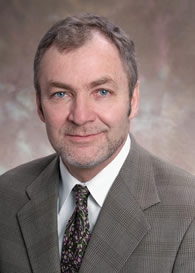
Walter J. Curran, Jr., MD, executive director, Winship Cancer Institute
Download Hi-Res Image (2.1 MB)
Walter J. Curran, Jr., MD, executive director of the Winship Cancer Institute of Emory University, urged Congressional leaders to shore up support for cancer research in light of a projected $1.6 billion drop in National Institutes of Health (NIH) funding.
Dr. Curran testified on behalf of the Association of American Cancer Institutes, which represents 95 of the nation’s premier academic and free-standing cancer research centers. As a practicing radiation oncologist and cancer researcher, Curran drew on his first-hand knowledge of research affecting the lives of Winship patients.
“Winship has an outstanding research team making real progress understanding how to target newly discovered mutations causing lung cancer, the type of cancer causing the most deaths in our country. We are observing an increase in the number of lung cancer patients who have little or no tobacco use history, and we are just beginning to understand the genetic and genomic risk factors of such individuals for developing lung cancer,” Curran told the subcommittee. “A break in funding support of this and other projects could delay finding new and effective therapies for thousands of patients by years.”
Dr. Curran gave his testimony before the U.S. House of Representatives’ Appropriations Subcommittee on Labor, Health and Human Services, Education and Related Agencies, chaired by U.S. Representative Jack Kingston (R-Savannah) of Georgia.
Dr. Curran focused on the relationship between NIH and the nation’s cancer centers. The National Cancer Institute (NCI), a branch of NIH, is a primary source of funding for cancer center research. NCI stands to lose approximately $250 million over the next 10 years under across the board federal budget cuts, known as “sequestration,” that took effect March 1.
“A cut to NIH and ultimately NCI will result in decreased funding to cancer research in all parts of the country and will devastate many of the research teams working on new treatments and new cures. Rebuilding such teams, even after a short break in funding, could take years.”
Dr. Curran invited political leaders to visit cancer centers in order to witness the vital role the institutions play in the health of constituents as they battle cancer.
“We are on a clear path to dramatic breakthroughs, both at Winship and cancer centers throughout the country,” Curran testified. “Your constituents deserve the best NIH, NCI, and our cancer centers have to offer in order to provide life-saving treatment.”
To learn more about the Winship Cancer Institute of Emory University, its research, outreach, clinical trials and faculty and staff, visit http://winshipcancer.emory.edu
